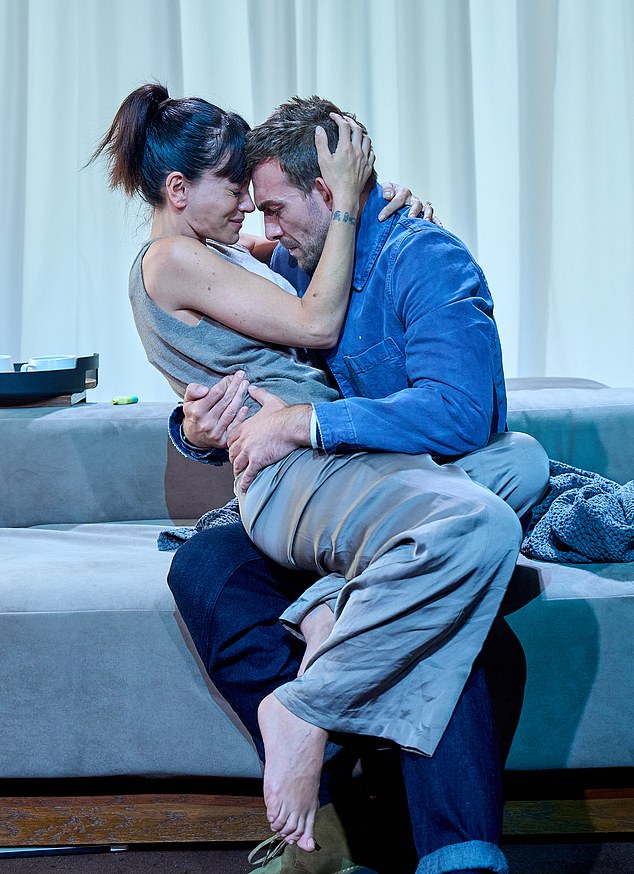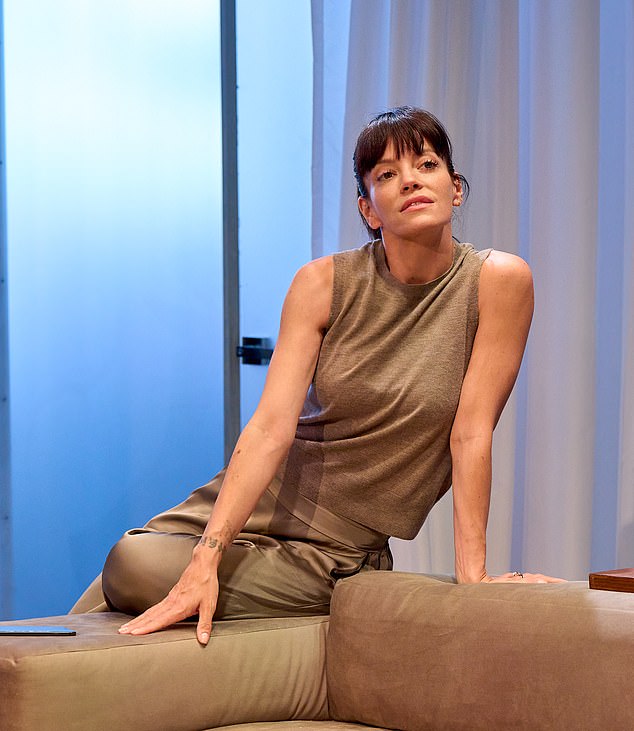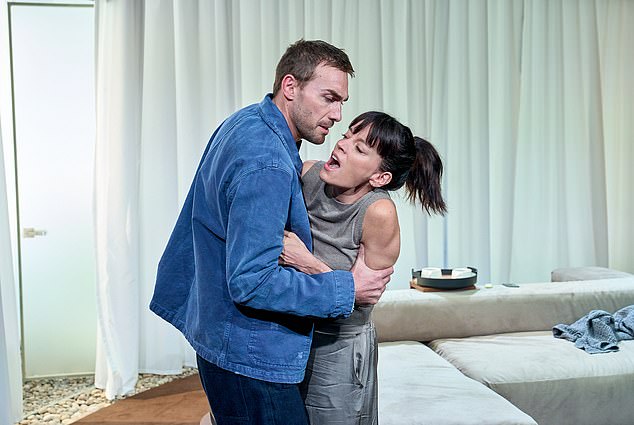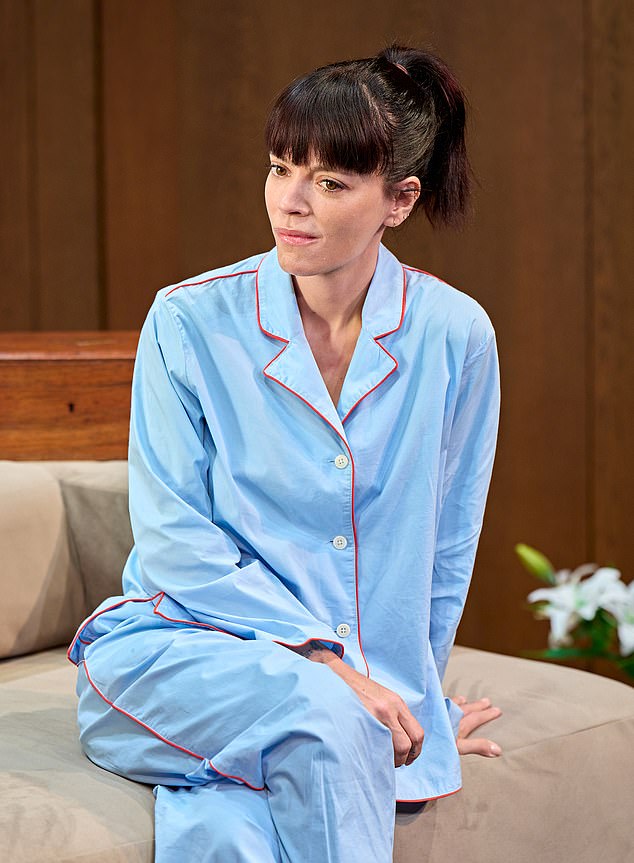HEDDA, Ustinov Studio, Bath Theatre Royal
A GREAT actor can make us care about almost anybody.
But Lily Allen, in her latest stage venture at Bath’s tiny Ustinov Studio, has to cope with one of the dodgiest characters in all of drama.
We are talking about Hedda Gabler, the alpha-narcissist creation of 19th-century Norwegian playwright Henrik Ibsen.
Hedda is an entitled madam who, in Matthew Dunster’s modernised version, has the airs and graces of a spoilt supermodel.
Fitted out with a modern backstory – Hedda is now the daughter of a late musician allegedly swindled by Spotify, and she moans that she ‘misses her daddy and having it all’ – she’s also being dumped into ‘middle class suburban poverty’ by marrying a sweet but dull professor of something very obscure.
Set in the West Country (or ‘f***ing Somerset’ as one character curses), we are in the realms of deep self-absorption.

A GREAT actor can make us care about almost anybody. But Lily Allen, in latest stage venture at Bath’s tiny Ustinov Studio, has to cope with one of the dodgiest characters in all of drama

Matthew Dunster’s modernised version is fully crewed with understudies and clearly hoping for a West End transfer. And Allen’s name will surely sell tickets
Hedda’s ex, Jasper (Tom Austen, of Grantchester), returns, weeping that he doesn’t want to be his partner’s version of himself, but lacks the guts to be his own version of himself. And if you can unravel that, this show may well be for you.
Hedda’s thickly-bearded husband George (Ciaran Owens) is unsettlingly reminiscent of Allen’s recently ditched real-life ex-husband David Harbour (Stranger Things).
The difference is that George has had a personality bypass and she is without motivation for marrying this impecunious deadbeat who’s pathetically jealous of her ex.
Nor is it clear why George is marrying Hedda — a woman who’s very touchy, but not at all feely (around him at any rate).
And yet, even though she belittles and assaults an old friend, and urges her ex to shoot himself, we never really fear what Allen’s Hedda is capable of.
Other actors get more traction out of Dunster’s hyper-realistic dialogue, rooted in tortured inertia.
Austen oozes rizz as the chronically intense Jasper, who is an expert on the future (albeit not his own). Julia Chan as his new love (and
Hedda’s old friend), Taya, is an alarmingly vulnerable addict on the brink of a nervous breakdown.
Imogen Stubbs is emotionally urgent as a gushy aunt, while Brendan Coyle (Downton’s Mr Bates) is a soporifically insouciant MP and sugar daddy to Hedda.

But where she may get away with playing a motivelessly malignant character in this theatrical boutique, Shaftesbury Avenue will be a steeper test of fan loyalty

Hedda is not without quality, but it is almost entirely without empathy. No actor can survive that.
Thankfully, Najla Andrade puts the neurotic swamp in perspective as the bashful Brazilian housekeeper, fearful of everyone’s volatile mental state.
Anna Fleischle’s set design, meanwhile, embodies the play’s soullessness, with a minimalist interior that looks like an upmarket funeral parlour with floor to ceiling net curtains.
Dunster’s production is fully crewed with understudies and clearly hoping for a West End transfer. And Allen’s name will surely sell tickets.
But where she may get away with playing a motivelessly malignant character in this theatrical boutique, Shaftesbury Avenue will be a steeper test of fan loyalty.
Hedda is not without quality, but it is almost entirely without empathy. No actor can survive that.












